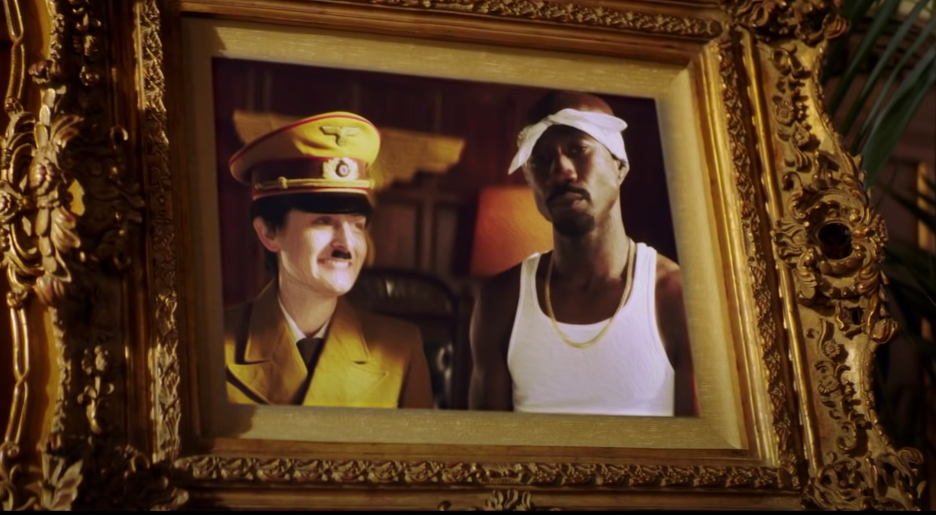In one of the episodes of the hilarious (and genuinely educational) Comedy Central series, Drunk History, Tiffany Haddish tells the story of museum curator Rose Valland’s role in saving priceless art stolen by the Nazis. Increasingly drunk, by the end she’s describing Valland dancing in front of a pissed-off Hermann Goring as he’s arrested. She concludes, “Hitler killed himself … they say. I think he’s hanging out with Tupac.” The bit ends by focusing on a framed photo of Hitler and Tupac.
Real events. Funny re-enactments. But nobody takes the drunken details as fact. And certainly, nobody would think the increasingly plastered narrators became more accurate about the details.
A single drunk narrator is, most certainly unreliable. But what about a group of them?
We’ve all heard about the wisdom of the crowd. But are crowds still wise if they are drunk?
A 2008 study by Daniel Frings has the answer.
The tl;dr is that just as groups of sober people are more accurate than sober individuals, drunken groups are more accurate that drunk individuals.
The 2008 study, titled “Groupdrink” (not to be confused with the 2006 or 2007 study of the same title by most of the same authors), starts off by stating two uncontroversial but seemingly unrelated issues: (1) Alcohol can be responsible for a lot of social evils; and (2) Groups often don’t reach their potential for improving decision accuracy or quality.
The authors then took the novel approach of combining the problems to see if that produced something beneficial.
And it actually did.
They gave participants (undergraduates with “normal drinking habits”) enough cocktails to get their blood alcohol content to .08 and had them individually record their count of the number of occurrences of the word “the” in a spoken passage. Some participants then joined four-person groups to discuss their estimates and come to a single group decision. (There were also control conditions for individuals and groups people doing the same task, but they only thought they were getting drunk; they were given a non-alcoholic drink that smelled like vodka.)
Not surprisingly, they found that alcohol significantly impaired individual accuracy. But it did not impair group accuracy: “Group consensus was less erroneous than group members private judgments [and] less erroneous than private judgments both in the placebo condition and the alcohol condition.”
Score one for groups!
They concluded that “The decision process used by groups appears to offset the deleterious effects of alcohol upon individual members.”
It may not be an endorsement of the Rat-Pack-at-the-Sands tipsy lifestyle, but at a minimum, it’s a good argument against drinking by yourself.






Annie - Thanks for sharing. Fun study. Drinks anyone? 😊
An ingenious premise for a study. Two wrongs make a right. Managing to convince the control group about the non-vodka vodka deserves kudos. Special thanks to you Annie for linking to a free downloadable PDF of the published paper!